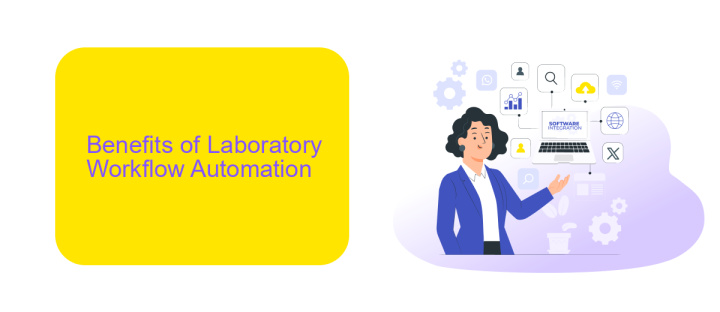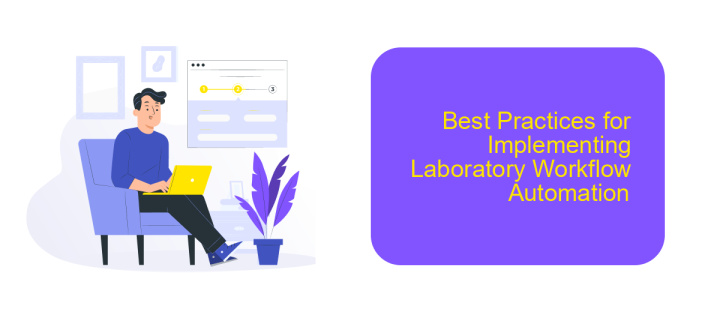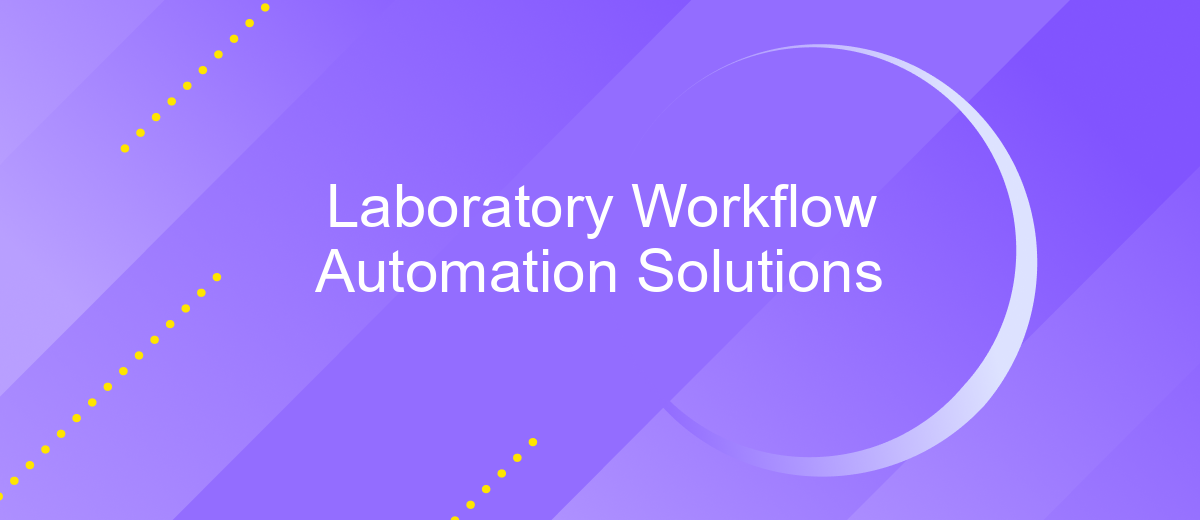Laboratory Workflow Automation Solutions
In today's fast-paced scientific environment, laboratory workflow automation solutions are revolutionizing the way research and diagnostics are conducted. By streamlining repetitive tasks and enhancing data accuracy, these advanced systems not only boost productivity but also ensure higher reliability and efficiency. This article explores the latest innovations in lab automation and their transformative impact on modern laboratories.
Laboratory Workflow Automation Solutions
Laboratory workflow automation solutions streamline various processes, enhancing efficiency and accuracy. By automating repetitive tasks, laboratories can focus on more critical activities, ultimately leading to better outcomes and increased productivity.
- Automated sample tracking and management
- Data integration and analysis
- Real-time monitoring and reporting
- Enhanced compliance with regulatory standards
- Reduction of human error
One effective tool for integrating various laboratory systems is ApiX-Drive. This service facilitates seamless data transfer between different software applications, ensuring that information flows smoothly and accurately. By leveraging ApiX-Drive, laboratories can automate complex workflows without the need for extensive coding, making it easier to maintain consistent and reliable operations.
Benefits of Laboratory Workflow Automation

Laboratory workflow automation significantly enhances efficiency and accuracy by reducing manual intervention in routine processes. Automated systems streamline tasks such as sample tracking, data entry, and report generation, thus minimizing human errors and ensuring consistent quality. This leads to faster turnaround times and allows laboratory personnel to focus on more complex and value-added activities, ultimately improving overall productivity.
Moreover, integrating laboratory automation with other systems can be seamlessly achieved using tools like ApiX-Drive. ApiX-Drive facilitates the connection between various software and hardware components, ensuring smooth data flow and interoperability. This not only simplifies the integration process but also enhances the scalability and adaptability of laboratory operations. As a result, laboratories can easily adjust to new technologies and methodologies, staying ahead in a rapidly evolving scientific landscape.
Types of Laboratory Workflow Automation Solutions

Laboratory workflow automation solutions are essential for improving efficiency and accuracy in modern labs. These solutions streamline various tasks, from sample management to data analysis, reducing manual errors and freeing up valuable time for researchers.
- Sample Management Systems: These systems automate the tracking and handling of samples, ensuring accurate labeling, storage, and retrieval.
- Automated Data Analysis: Tools that process and analyze data automatically, providing quick and reliable results.
- Robotic Process Automation (RPA): Robots that perform repetitive tasks such as pipetting, mixing, and transferring samples.
- Integration Platforms: Services like ApiX-Drive facilitate seamless integration between different laboratory software, enabling smooth data flow and reducing the need for manual data entry.
- Laboratory Information Management Systems (LIMS): Comprehensive platforms that manage all aspects of laboratory operations, from sample tracking to reporting.
By implementing these automation solutions, laboratories can significantly enhance their productivity and accuracy. Tools like ApiX-Drive play a crucial role in integrating various systems, ensuring a cohesive and efficient workflow. Embracing these technologies is essential for staying competitive and achieving high-quality research outcomes.
Best Practices for Implementing Laboratory Workflow Automation

Implementing laboratory workflow automation can significantly enhance efficiency and accuracy. However, to achieve optimal results, it's crucial to follow best practices. Start by conducting a thorough needs assessment to identify areas that could benefit most from automation.
Next, choose the right automation tools that align with your lab's specific requirements. Consider factors such as scalability, compatibility with existing systems, and user-friendliness. It's also essential to involve your team in the decision-making process to ensure the selected tools meet their needs.
- Conduct a thorough needs assessment.
- Choose the right automation tools.
- Involve your team in decision-making.
- Ensure scalability and compatibility.
- Provide comprehensive training.
For seamless integration of various systems, consider using services like ApiX-Drive, which can automate data transfer between applications. Finally, provide comprehensive training to your staff to ensure they are comfortable using the new automated systems. Regularly review and update your processes to adapt to evolving needs and technologies.
Conclusion
In conclusion, the implementation of laboratory workflow automation solutions significantly enhances efficiency, accuracy, and productivity in laboratory settings. By automating routine tasks, laboratories can reduce human error, streamline processes, and ensure better compliance with regulatory standards. This not only saves time and resources but also allows laboratory personnel to focus on more complex and value-added activities, ultimately leading to improved research outcomes and faster decision-making.
Moreover, integrating these automation solutions with existing laboratory information management systems (LIMS) can be seamlessly achieved using platforms like ApiX-Drive. ApiX-Drive facilitates the smooth integration of various applications and services, ensuring that data flows effortlessly between systems. This capability is crucial for maintaining data integrity and enhancing the overall efficiency of laboratory operations. As laboratories continue to adopt advanced automation technologies, the role of integration platforms like ApiX-Drive will become increasingly vital in supporting the evolving needs of modern laboratory environments.


FAQ
What are the benefits of laboratory workflow automation solutions?
How do laboratory workflow automation solutions improve data management?
Can laboratory workflow automation solutions be customized to fit specific laboratory needs?
What is the process for integrating automation solutions into an existing laboratory setup?
Are there any challenges associated with implementing laboratory workflow automation solutions?
Apix-Drive is a universal tool that will quickly streamline any workflow, freeing you from routine and possible financial losses. Try ApiX-Drive in action and see how useful it is for you personally. In the meantime, when you are setting up connections between systems, think about where you are investing your free time, because now you will have much more of it.

